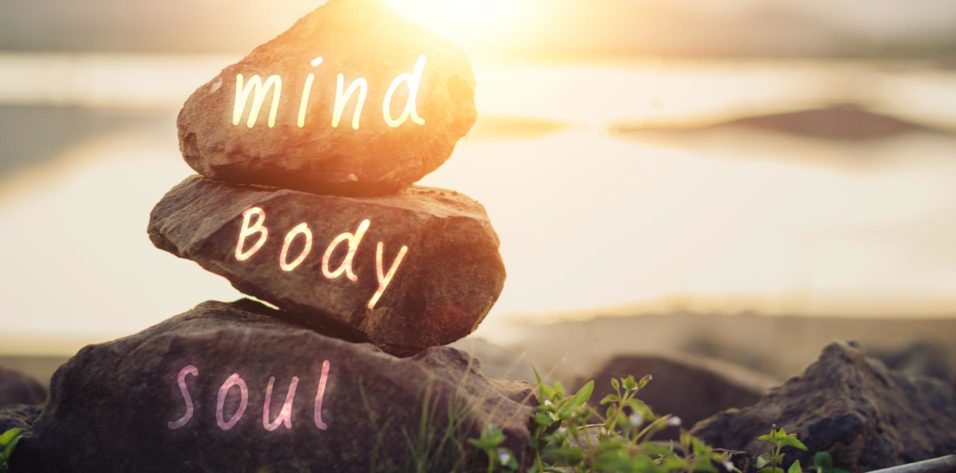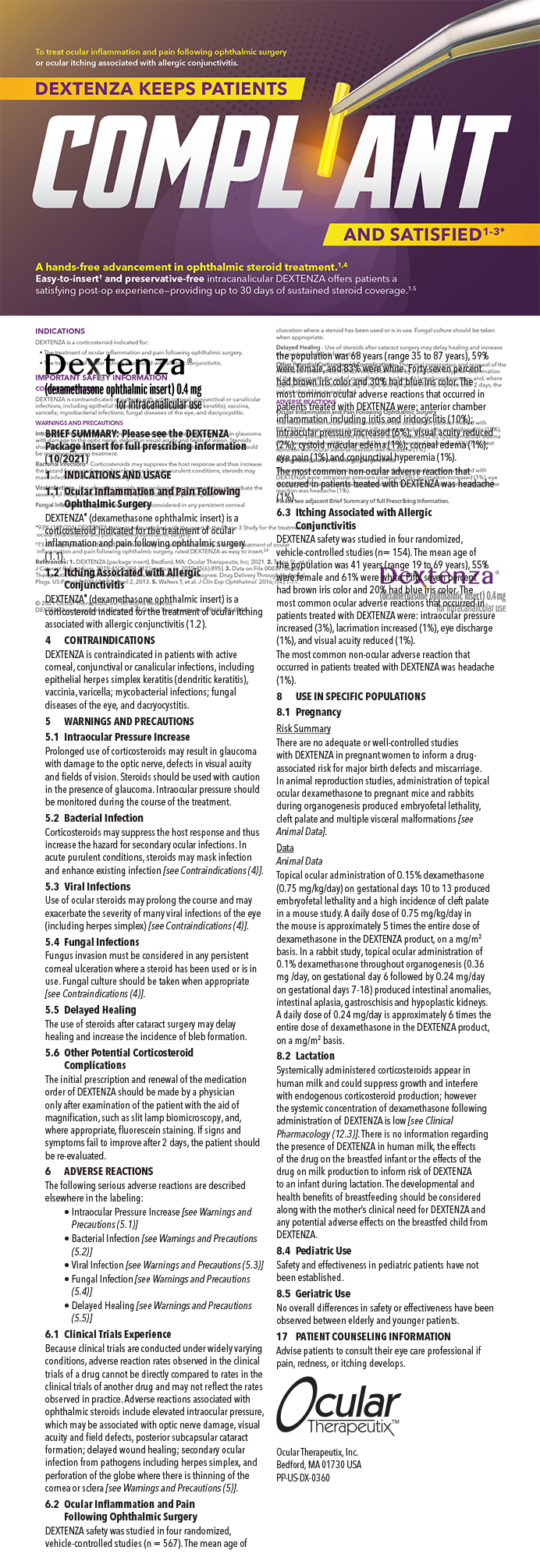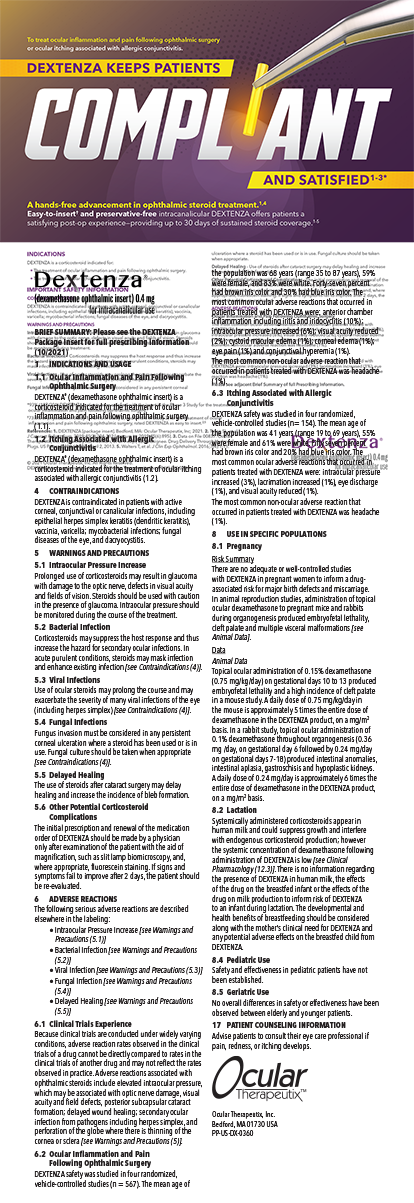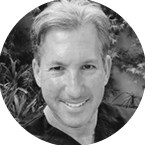
Inherent to ophthalmology is a desire to succeed—to master our skills as surgeons, to push our limits and never settle for the status quo, to search for answers to complex problems, to embrace adversity, and to transform ourselves. I could go on. We have all worked hard to get where we are. How can we avoid burnout?
READING
When I was growing up, my dad, who is also an ophthalmologist, didn’t feel that my school had me reading enough classic literature, so he assigned novels such as Captains Courageous, The Last of the Mohicans, Moby Dick, A Tale of Two Cities, and Adventures of Huckleberry Finn to supplement my education. At first, I was angry that I had to spend extra time reading and writing book reports for him. Gradually, however, I began to appreciate the power of imagination and the opportunities the world provides if we take the time to learn, ask questions, and reach for greatness. What took me years of reflection to recognize was that he had not randomly selected books. Instead, he chose literature about young men who were trying to find their way in life while facing adversity head-on, overcoming obstacles, and blazing a path forward. Today, I truly enjoy reading for pleasure, and I gravitate toward literature that teaches life lessons.
FITNESS
Although reading supports my mental health, physical fitness has always been paramount to keeping my ship on course. In addition to traditional recreational sports such as soccer, hockey, and baseball, I learned to ski at an early age. As with most things I do, I embraced the challenge to excel as a competitive racer and competed all the way through college. Looking beyond the physical challenge to skiing, the mental challenge is to overcome fear and trust that hard work and muscle memory will keep you safe. This not to say setbacks don’t occur. The majesty of the great outdoors and the thrill of speeding down a mountain at 65 mph or dropping into a challenging chute invariably motivate me to get back up and do it again and again. Now that my son, Justin, is 21 years old, he gives me a run for my money (Figure 1).
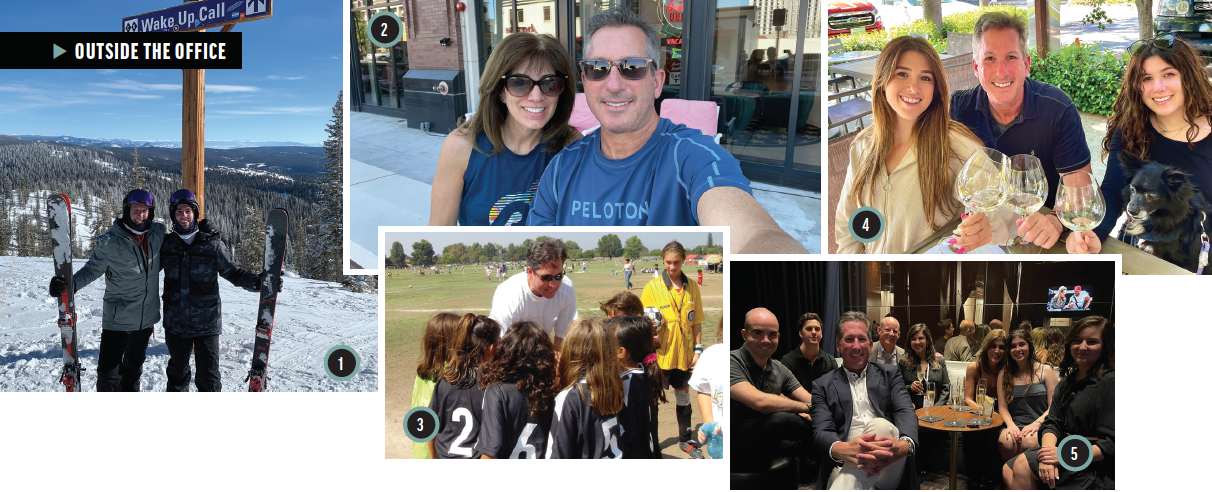
Figures. Dr. Shultz and his son, Justin, skiing (1). Dr. Shultz and his wife, Karen (2). Dr. Shultz coaching the soccer team of one of his daughters (3). Dr. Shultz with his daughters, Shaina and Nikki (4). The Alchemy Vision team at the ASCRS 2021 Annual Meeting (5).
During the COVID-19 pandemic, finding ways to cope with the stress and avoid physical deterioration during the lockdowns has been essential. Weeks before it became apparent that COVID-19 was like nothing we had experienced in our lifetimes, my wife, Karen (Figure 2), and I went to the local mall to purchase a Peloton bike, and we ordered an elliptical stair climber online. The bike has helped me to maintain both my physical and mental strength; riding it is a much-needed outlet and part of my daily routine. Knowing that I can do hard things, pushing myself through the pain and fatigue, and saying, “Yes, I can,” is one of the most beneficial aspects of exercise.
FAMILY TIME
Work-life separation. Nothing is more important to me than family time. From the beginning of my career, I always wanted to be involved with industry, conduct research to advance the field, and teach colleagues around the world. I recognized early on, however, that maintaining work-life balance was crucial to the health of my family unit. We ophthalmologists are a close-knit bunch of successful and highly motivated individuals. Our families do not always see or understand the energy, mental discipline, and stresses of our professional lives, and our work and drive often take a toll on our personal lives.
For these reasons, when my children were younger, I made a point to be engaged as a father. I coached and managed their soccer teams for years (Figure 3), and I was home for dinner every evening. My son played club soccer from the age of 9 to 18, and I never missed a match, even traveling to Europe with his team. I chose to stay off major podiums for years. That said, I continued to find ways to be involved through my work as a section editor for CRST, on medical advisory boards, and as a consultant on various projects—all work that could be done without affecting my family time.
Work-life integration. Now that my kids are grown up, I look for opportunities to serve as an educator and entrepreneur while including my family in the process. Karen, a retired attorney, now works as my clinical research coordinator. My daughters, Shaina and Nikki (Figure 4), recently graduated from college and got involved in a start-up that I cofounded this past year (Figure 5). This company, Alchemy Vision Project, is focused on providing affordable, online technician and staff education for the eye care industry. Justin, a computer science major, has helped to address some programming issues we have run into while building out the platform.
It is quite interesting having young adult children at this time. The pandemic forced them to live at home this past year, and stress levels have been high with us in close quarters for months and lacking outside personal contact with friends and extended family. Alchemy Vision Project, however, has brought us together and given us time to learn from each other and grow as a family.

